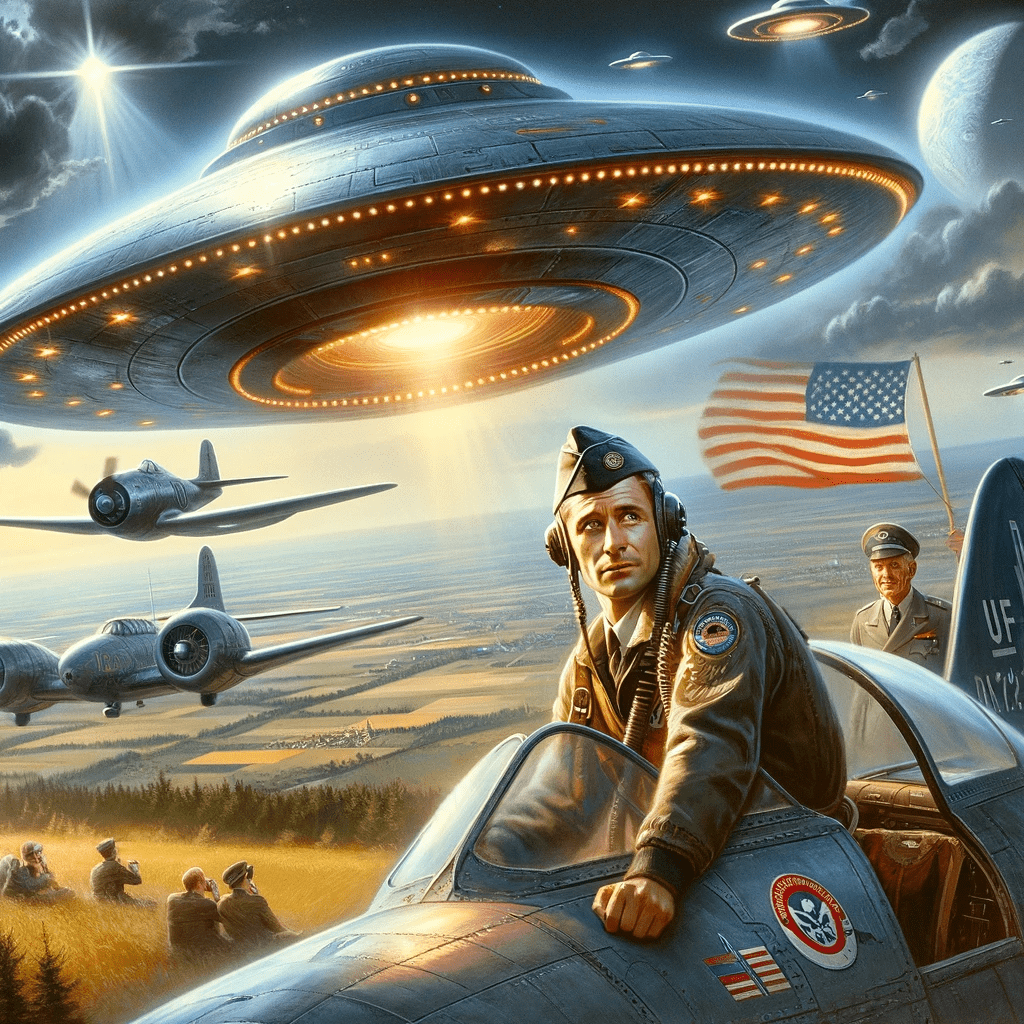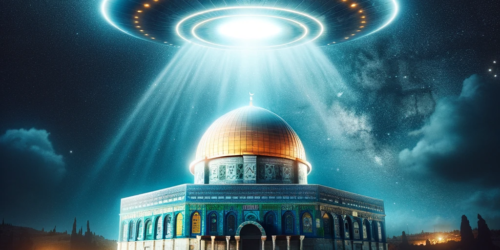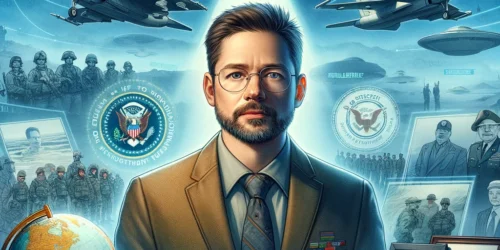Gordon Cooper

Gordon Cooper was an astronaut and one of the original Mercury Seven who flew the longest mission of the program in 1963. However, he also made headlines for his claims of witnessing unidentified flying objects (UFOs) and their potential extraterrestrial origin.
Cooper’s encounter with a UFO occurred in 1951 while he was a military pilot stationed in Germany. He reported seeing a metallic disk-shaped object that flew alongside his aircraft and then abruptly shot up into the sky. He was not the only witness, as several other pilots in the area reported similar sightings. Cooper’s interest in the topic continued throughout his career as an astronaut, and he claimed to have seen UFOs on multiple occasions during his time at NASA.
Cooper’s belief in the possibility of extraterrestrial life and his claims of UFO sightings have been a topic of controversy and skepticism in the scientific community. However, there are several facts and opinions that have been presented on this issue:
Fact 1: Cooper’s sighting in 1951 was corroborated by other pilots who reported seeing similar objects in the same location at the same time. This was documented in declassified documents from the US Air Force’s Project Blue Book, which investigated UFO sightings from 1947 to 1969. (Source: History.com)
Fact 2: Cooper claimed that he had seen a UFO land at Edwards Air Force Base in California in 1957, and that he had been shown pictures of the encounter by a photographic technician. While there is no official record of this incident, several other witnesses have come forward to support Cooper’s claims. (Source: OpenMinds.tv)
Fact 3: Cooper was one of several astronauts who signed a petition to the United Nations in 1977, calling for the establishment of an international UFO research program. The petition stated that “the continued denial of the existence of UFOs only strengthens the position of those who would use the UFO phenomena for ulterior purposes.” (Source: The Black Vault)
Books on the topic of UFOs and extraterrestrial life often reference Cooper’s experiences as evidence of their claims. For example, Jacques Vallee’s book “Passport to Magonia” discusses Cooper’s 1951 sighting and its implications for the study of UFOs. Similarly, Timothy Good’s book “Need to Know: UFOs, the Military, and Intelligence” references Cooper’s experiences as evidence of a cover-up by government agencies.



